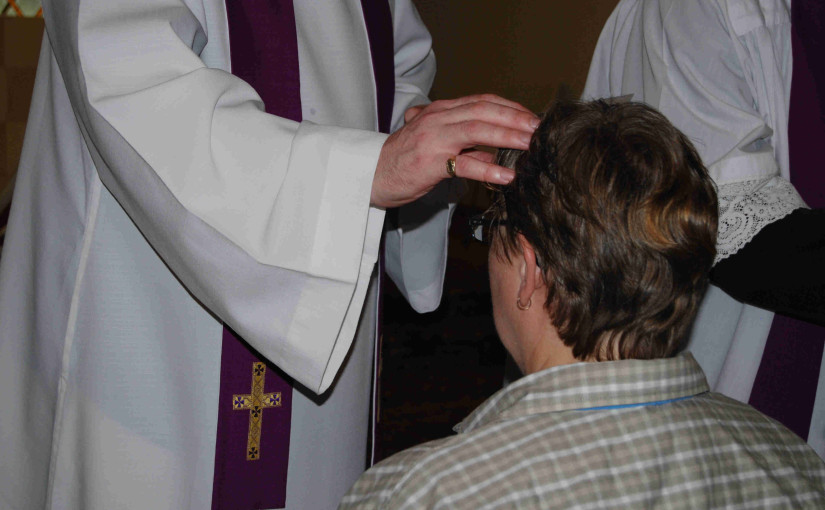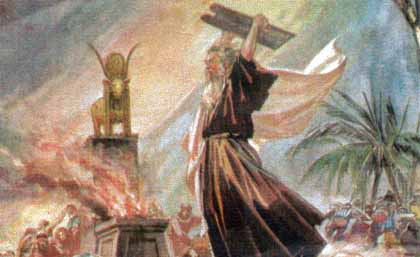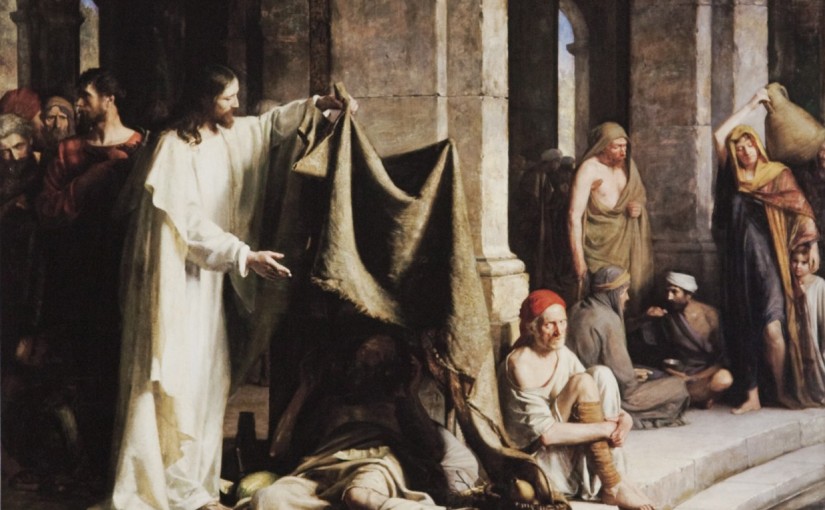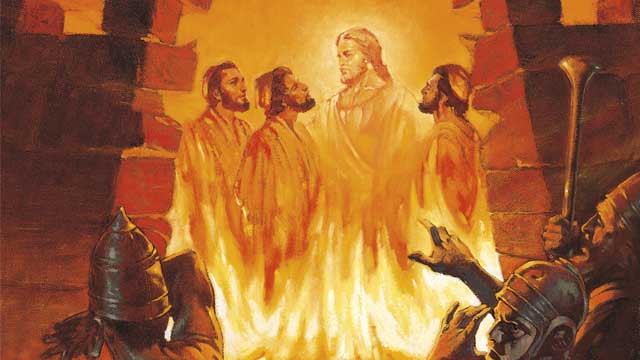Yesterday I presided at the funeral of the mother of one of my friends. It was a beautiful gathering because she and her sister basically took the last few weeks off of their work commitments to be with her during her last days. Not everyone can do that, but it did give them a lot of peace. What also gave them peace was that their mother was anointed during her illness, which prepared her for her entry into eternal life.
Saint James tells us: “Is anyone among you sick? Let them call on the priests of the Church and let the priests pray over them in the name of the Lord. The prayer of faith will save the sick persons and the Lord will raise them up. And if they have committed any sins, their sins will be forgiven them.” And so this is the charge that the Church uses to direct the Anointing of the Sick. We do that as a Church because we are convinced that it is only our faith that can give us solid foundation when we are sick or dying. It takes an act of faith in God’s care for us to really navigate illness and pain.
This Mass is that act of faith. In the Anointing of the Sick, the Church proclaims courageously that there is no malady that cannot be addressed by our God; that he can take on whatever ails us, bind up whatever is broken in us, and bring forth something new, something beautiful, something perhaps unexpected. Today we gather as the Church and place our faith in the healing of our God. We acknowledge that the healing God brings us doesn’t always make all of our illness go away, but we also don’t rule that out. We trust that God, who sees the big picture, knows what is best for us and desires that we come to the greatest good possible. We also trust that God’s grace is enough to help us address illness, infirmity, pain, suffering, and the ardors of medical treatment. We know that our God walks with us in good times and in bad. There is nothing that can take away God’s love for us.
I love the words of the prophet Isaiah in today’s first reading:
Remember not the events of the past,
the things of long ago consider not;
see, I am doing something new!
Now it springs forth, do you not perceive it?
In the desert I make a way,
in the wasteland, rivers.
Our lives can bring us all sorts of pain and illness; so much so that we can get mired in all of that and forget that the current page that we’re on is not the end of our story. God is always doing something new. It might take a leap of faith, which is perhaps uncomfortable, but God even brought forth water in the wasteland of the desert for his people to drink during the Exodus. He can certainly bring us to something new and better than what we’re currently enduring. That’s the theological virtue of hope.
In today’s familiar Gospel reading, Jesus heals the woman caught in the act of adultery. Sure he saved her from being stoned to death, but that’s not the healing I’m talking about. The healing came in his last words to her: “Neither do I condemn you. Go, and from now on do not sin any more.” He has healed her from the woundedness of her sins. Jesus saw what was really broken in her, whatever it was that brought her to this sad day, and he set her free from it, and called her to repentance. Because it is repentance that opens us to God’s mercy and any real healing.
And so it’s our need for healing that brings us together in faith today. We gather today to express the prayers of our hearts, perhaps prayers we haven’t been able to utter for some reason or another. We gather today to place ourselves in God’s hands and experience his healing, in whatever way is best for us. The Church has this sacrament because of who Jesus was and because of what he came to do among us. Jesus was that suffering servant from the book of Isaiah’s prophecy, the One who took on our illnesses and bore our infirmities. He was spurned and avoided, oppressed and condemned, all the while giving his life as an offering for sin, justifying many, and bearing their guilt. God always knew the frailty of human flesh, but when he decided to come to his people, he did not avoid that frailty; instead he took it on and assumed all of its effects. This is why we treat the sick with dignity: our frailty was good enough for our God, and we know that the sick are very close to our Lord in their suffering, because he suffered too.
Large portions of the Gospel see Jesus caring for the sick, responding to their faith, healing them from the inside out. The sick sought him out, they called out to him as he passed along the way, they reached out to touch just the tassel of his cloak, their friends brought them to Jesus, even lowering them down from a hole in the roof if the crowds were too big. He was moved by their faith, always responding to them, healing not just their outward symptoms, but also and perhaps most of all, the inner causes of their illnesses, forgiving their sins, and giving them a place in the Kingdom.
Jesus still does this today. He still walks with us in our suffering, whether we are to be cured or not, letting us know that we don’t suffer alone. He still responds to our faith, curing our brokenness and healing our sinfulness. If he judges that it is best for us, he heals our outward symptoms too, perhaps even curing our diseases, and he gives us all a place in the Kingdom, if we have the faith to accept it and to receive the healing he brings us.
Jesus continues his healing mission through the Church in our day. Certainly the priests provide the sacraments to the sick and the dying. But also, the entire people of God are called to the corporal work of mercy of caring for the sick. Every act of mercy and every prayer for the sick is part of the healing work of Jesus. Doctors and nurses and therapists and other caregivers also provide the healing ministry of Jesus, particularly when they are men and women of faith. This ministry is also provided by our many Ministers of Care, people who visit the sick and bring them the Eucharist in their homes, in hospitals, and in nursing homes. The Church’s ministry to and with the sick is the visible sign of the love of God at work in our world and his care for all those who are suffering.
We don’t know if you all will walk out of this holy place healed of all your diseases. But we can promise that you will be freed from your sins, healed from the inside out, and that your Lord will always walk with you, even in your darkest hours. We have faith that healing will come at some time in some way, of the Lord’s choosing, for your good, and for the glory of God. That’s why we are here today. That’s why we celebrate this beautiful sacrament with you today. We know that our Lord deeply desires to heal us. And we know that every healing moment is a miracle, made possible by God’s great love poured out on us when we make an act of faith.




You must be logged in to post a comment.